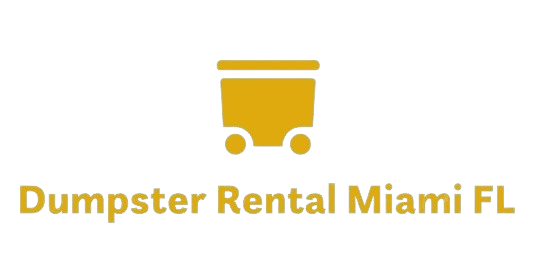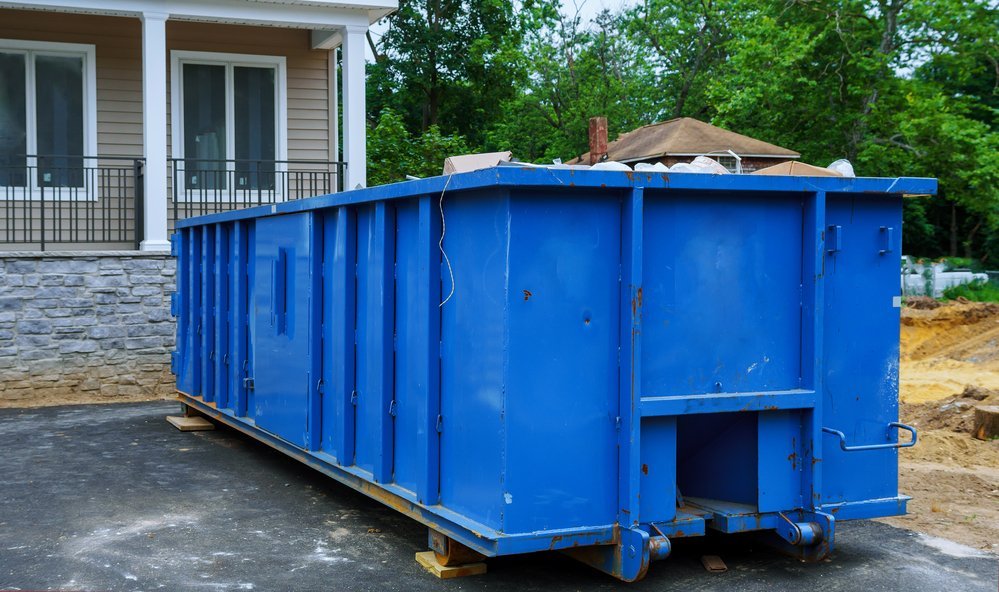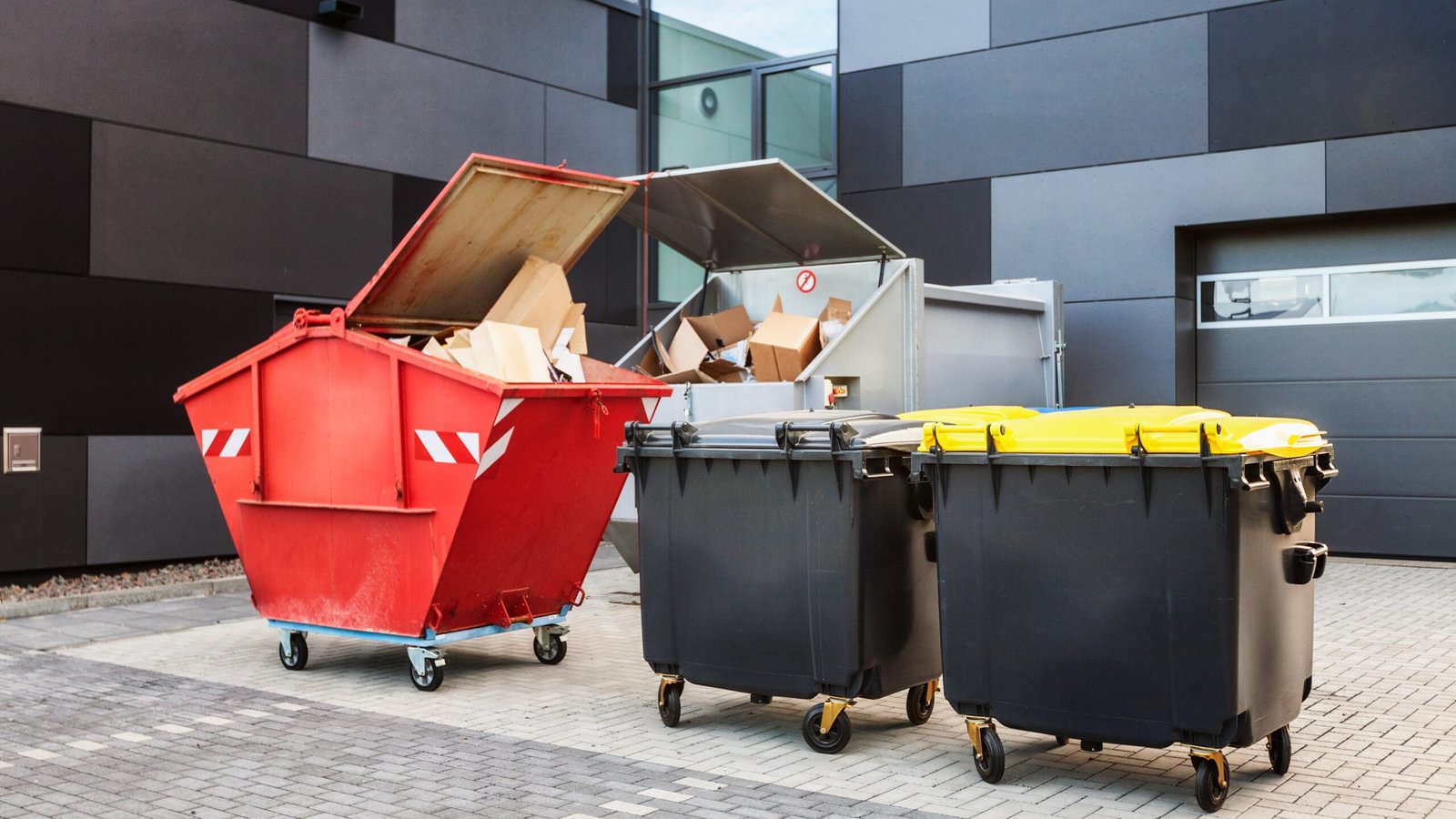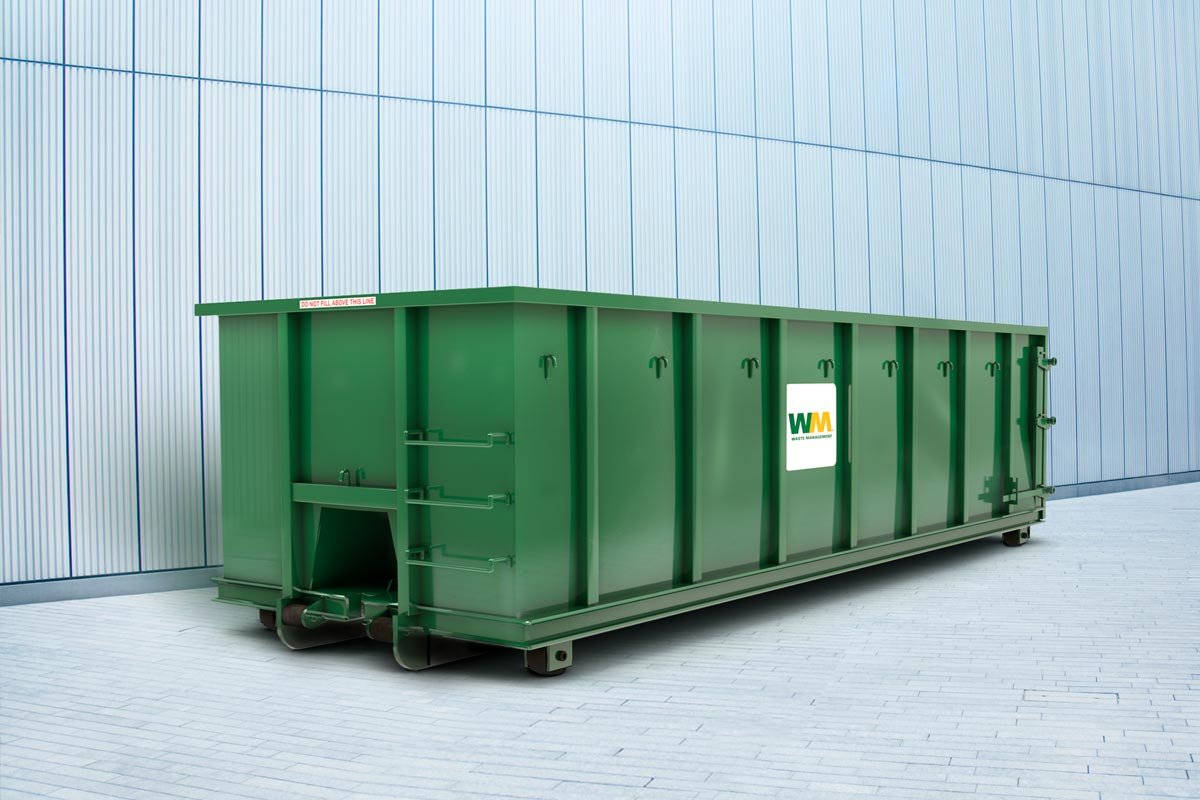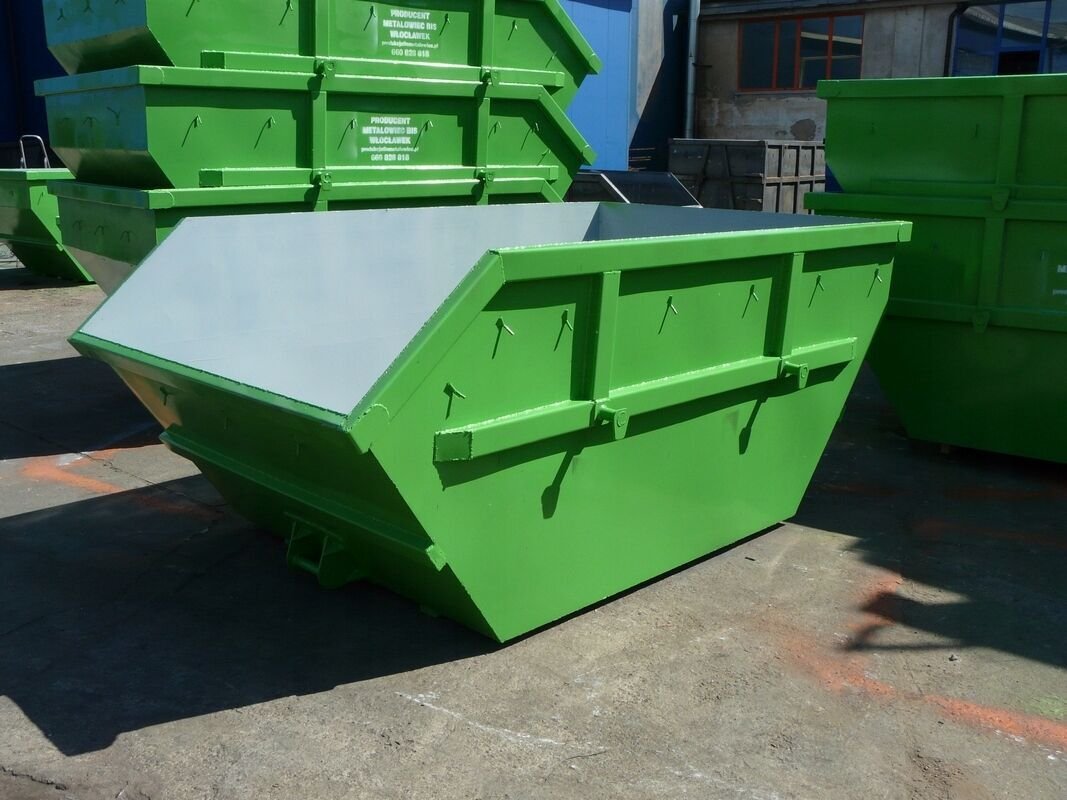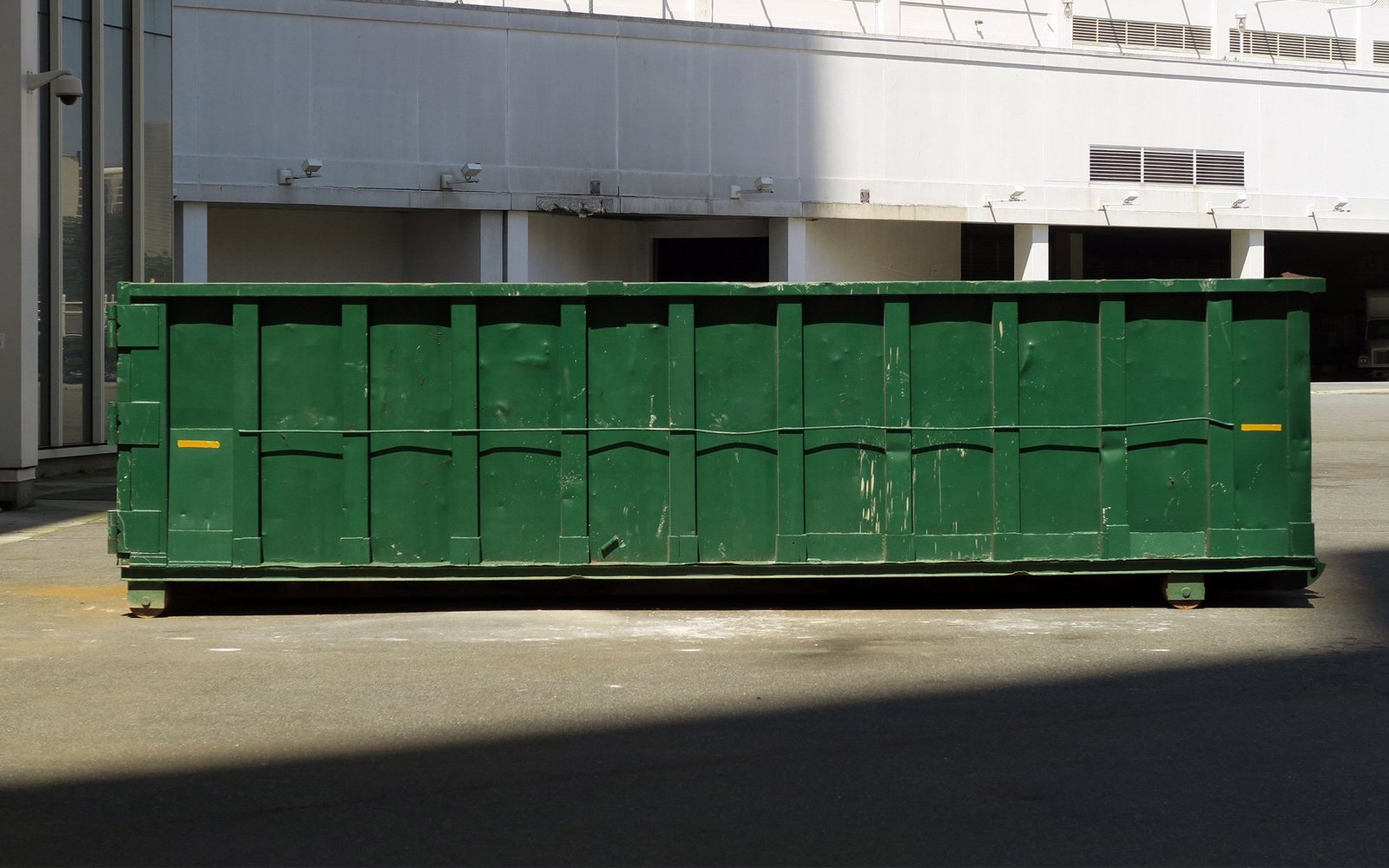In the bustling city of Miami, Florida, managing waste disposal is a crucial aspect for both residential and commercial properties. One common solution that many property owners consider is renting a dumpster. However, before embarking on this endeavor, it is essential to first understand the permit requirements associated with Dumpster Rental in Miami FL. To highlight the significance of these regulations, let us consider the hypothetical case of a construction project in downtown Miami.
Imagine a scenario where a construction company plans to commence work on a high-rise building within the heart of downtown Miami. In their efforts to ensure efficient waste management throughout the duration of the project, they decide to rent several dumpsters. Unbeknownst to them at first, there are specific permit requirements in place that must be adhered to when renting dumpsters within the city limits. This example serves as an illustration of how even well-intentioned individuals or corporations can unintentionally overlook vital permitting processes without proper knowledge or guidance. Thus, understanding these permit requirements becomes paramount for anyone considering dumpster rental in Miami FL.
Overview of Miami’s dumpster rental regulations
Miami, FL has specific regulations in place for dumpster rentals to ensure the safe and efficient disposal of waste materials. Understanding these regulations is crucial for both residents and businesses looking to rent a dumpster within the city.
One example that highlights the importance of adhering to these regulations involves an incident where a local business rented a large dumpster without obtaining the necessary permits. As a result, they faced hefty fines and were required to remove the dumpster immediately due to non-compliance with municipal guidelines. This case underscores the significance of understanding and following proper procedures when renting dumpsters in Miami.
To better comprehend Miami’s dumpster rental requirements, it is helpful to consider several key points:
- Permitting Process: Before renting a dumpster, individuals or businesses must obtain the appropriate permits from the City of Miami. The permitting process typically requires applicants to submit detailed information regarding their project, including location, duration, and type of debris being disposed.
- Size Restrictions: Miami imposes limitations on the size of dumpsters that can be placed in certain areas. For instance, residential neighborhoods may have stricter size restrictions compared to commercial zones. It is important to consult local zoning ordinances and adhere to any designated size limits.
- Placement Guidelines: Proper placement of dumpsters is essential for maintaining public safety and minimizing disruptions. In accordance with Miami’s regulations, dumpsters should not obstruct roadways, sidewalks, fire hydrants, or other critical infrastructure elements.
- Prohibited Materials: Certain materials are restricted from being disposed of in dumpsters due to environmental concerns or potential hazards. These prohibited items often include hazardous chemicals, flammable substances, medical waste, electronics, and bulky appliances.
By familiarizing themselves with these guidelines through research or seeking advice from local authorities or professional rental companies, individuals can navigate the process more effectively while avoiding unnecessary penalties and complications.
Transitioning into choosing the right dumpster size for your needs…
Choosing the right dumpster size for your needs
Permit Requirements: Dumpster Rental in Miami FL
In the previous section, we explored an overview of Miami’s dumpster rental regulations. Now, let’s delve into the specific permit requirements that must be fulfilled when renting a dumpster in Miami, Florida.
To illustrate these requirements, consider a hypothetical scenario where John is renovating his home and needs to rent a dumpster for waste disposal purposes. In order to comply with Miami’s regulations, John would need to obtain certain permits before placing a dumpster on his property.
There are several key factors to consider regarding permit requirements for dumpster rental in Miami:
- Location: The placement of the dumpster on your property may require permission from various entities such as homeowner associations or local government agencies. It is important to ensure compliance with any zoning restrictions or guidelines pertaining to the placement of dumpsters.
- Duration: Depending on how long you intend to keep the dumpster at your location, different permits may be required. Temporary permits typically cover shorter durations, while longer-term projects might necessitate extended permits.
- Size and Capacity: The size and capacity of the rented dumpster can also affect permit requirements. Larger dumpsters may require additional documentation or approvals due to their potential impact on surrounding areas.
- Waste Classification: Certain types of waste, such as hazardous materials or construction debris, may have specific disposal regulations that could influence the necessary permits for renting a dumpster.
To visualize this information more effectively, here is a bullet point list highlighting some emotional responses that individuals might experience when navigating through permit requirements:
- Frustration: Understanding complex rules and regulations
- Anxiety: Ensuring compliance with all necessary permits
- Relief: Obtaining proper documentation after fulfilling all requirements
- Confidence: Knowing that responsible waste management practices are being followed
Additionally, let’s present this information in a table format:
| Permit Requirement | Emotional Response |
|---|---|
| Location | Frustration |
| Duration | Anxiety |
| Size and Capacity | Relief |
| Waste Classification | Confidence |
In conclusion, it is vital to familiarize yourself with the permit requirements when renting a dumpster in Miami. By considering factors such as location, duration, size, capacity, and waste classification, you can ensure compliance and avoid potential penalties or complications.
Next, let’s explore Sustainable Alternatives to traditional dumpster rental methods that promote environmentally friendly waste management practices.
Exploring sustainable alternatives to dumpster rental
Transitioning from the previous section on choosing the right dumpster size, let us now delve into an important aspect of renting a dumpster in Miami, Florida – permit requirements. Understanding these requirements is crucial to ensure compliance with local regulations and avoid potential fines or penalties. To illustrate this further, consider a hypothetical scenario where a residential construction project requires a 20-yard dumpster.
Obtaining a permit for dumpster rental involves several considerations. Here are some key points to keep in mind:
-
Research local regulations:
- Check with Miami-Dade County authorities to determine specific guidelines and restrictions regarding dumpsters.
- Understand zoning laws that may impact placement and duration of dumpster use.
-
Determine if you need a permit:
- Depending on the nature of your project and location within Miami city limits, you may require a permit for temporary dumpster placement.
- Consult with local officials or visit their website to ascertain whether permits are necessary.
-
Application process:
- If a permit is required, complete the requisite application form provided by the appropriate department.
- Pay any associated fees as specified by local regulations.
- Provide relevant details about your project, including estimated length of time for dumpster usage.
To better visualize the information presented above, refer to the table below which outlines key aspects related to obtaining permits for renting dumpsters in Miami:
| Key Aspects | Description |
|---|---|
| Local Regulations | Check Miami-Dade County guidelines and zoning laws |
| Need for Permit | Assess if your project requires a permit |
| Application Process | Complete forms, pay fees, provide project details |
Understanding and adhering to permit requirements when renting a dumpster not only ensures legal compliance but also fosters a responsible approach to waste management. By following the necessary procedures, you contribute to maintaining the aesthetic appeal and environmental integrity of Miami.
Transitioning into the subsequent section on understanding the environmental consequences of renting a dumpster, it is crucial to evaluate the ecological impact associated with this common practice in order to make well-informed decisions regarding waste disposal methods.
Understanding the environmental consequences of renting a dumpster
Understanding the Permit Requirements for Dumpster Rental in Miami FL
As we delve into the logistics of renting a dumpster, it is essential to comprehend the permit requirements involved. Let’s consider an example scenario where a construction company in Miami requires a large dumpster for debris removal during a renovation project. To legally place the dumpster on a public street or sidewalk, they would need to obtain specific permits from the local government authorities.
To navigate this process effectively, here are some key points to remember:
-
Research and Documentation:
- Begin by researching the regulations related to dumpster rental permits in Miami.
- Gather all necessary documentation required by the city or county, such as proof of liability insurance and identification documents.
- Keep records of any communication with the permitting office throughout the application process.
-
Application Process:
- Fill out the appropriate permit application forms accurately and completely.
- Submit your completed application along with any supporting documents within the specified timeframe.
- Pay any applicable fees associated with obtaining a permit.
-
Compliance and Restrictions:
- Ensure that you comply with all rules regarding dumpster placement, size limitations, and duration restrictions set forth by local authorities.
- Be aware of any additional guidelines concerning acceptable waste materials and recycling requirements.
-
Safety Considerations:
- Take precautions when placing dumpsters near roadways or pedestrian areas to prevent accidents or obstructions.
- Adhere to safety protocols while loading and unloading materials into the dumpster.
Consider this hypothetical case study: A construction company applied for a dumpster rental permit without fully understanding all compliance measures. As a result, their application was delayed due to missing documentation and inaccurate information provided on their initial submission. By following these steps diligently, one can avoid potential setbacks and ensure smooth processing of their permit request.
In our upcoming section about “Efficient tips for maximizing space in your dumpster,” we will explore strategies that can help optimize your rented dumpster’s capacity without compromising safety or regulations.
Efficient tips for maximizing space in your dumpster
Understanding the environmental consequences of renting a dumpster can help individuals make informed decisions about waste management. By considering the impact on the environment, it becomes clear that proper permit requirements for dumpster rental in Miami FL are necessary to ensure responsible disposal practices.
For instance, let’s consider a hypothetical scenario where a construction company decides to rent a dumpster without obtaining the required permits. Without these permits, they may unknowingly violate local regulations and contribute to negative environmental outcomes. For example, hazardous materials could be improperly disposed of or end up in landfills not equipped to handle them, resulting in soil and water contamination.
To prevent such situations and promote sustainable waste management practices, several key points should be kept in mind when dealing with dumpster rentals:
- Permit requirements: Research and identify the specific permit requirements needed for your intended use of the dumpster in Miami FL.
- Local regulations: Familiarize yourself with any additional local regulations concerning acceptable items for disposal and recycling options available.
- Proper sorting: Ensure that recyclable materials are separated from non-recyclable ones before disposing of them into the rented dumpster.
- Disposal guidelines: Follow established guidelines for appropriate disposal methods based on item type (e.g., electronics, chemicals) to minimize potential harm to the environment.
Considering these factors is essential for maintaining ethical waste management practices during dumpster rental. To further illustrate this point, here is a table showcasing some examples of common prohibited items often encountered during waste removal processes:
| Prohibited Items | Reason | Alternative Disposal Methods |
|---|---|---|
| Hazardous Chemicals | Environmental hazard | Local collection events |
| Electronics | Potential e-waste pollution | E-waste recycling centers |
| Medical Waste | Contamination risk | Proper medical facilities |
| Asbestos | Health hazards | Certified asbestos contractors |
By adhering to permit requirements and understanding the environmental consequences of dumpster rental, individuals can actively contribute to waste reduction efforts in Miami FL. In turn, this helps protect local ecosystems, reduce pollution, and promote sustainable practices.
Transitioning into the subsequent section about “Specific rules and restrictions for dumpster rental in Miami,” it is important to note that being aware of these broader environmental issues lays the foundation for a more detailed examination of specific regulations and guidelines related to dumpster rentals in the area.
Specific rules and restrictions for dumpster rental in Miami
Maximizing space in your dumpster is crucial for efficient waste management. By employing effective strategies, you can make the most out of the available capacity and reduce the need for additional rentals. Now, let’s delve into the specific rules and restrictions for dumpster rental in Miami to ensure compliance with local regulations.
To exemplify these guidelines, consider a hypothetical scenario where a construction company based in Miami needs to rent a dumpster for a demolition project. The company must adhere to certain permit requirements to avoid any legal issues or fines during their operations.
When renting a dumpster in Miami, it is essential to keep in mind the following key points:
- Permit Application: Prior to placing a dumpster on public property or right-of-way, such as sidewalks or streets, you may need to obtain a permit from the appropriate authorities. This permit ensures that your placement meets safety standards and does not obstruct traffic flow.
- Duration Limitations: Dumpster permits typically have specified time limits. Ensure that you comply with these limitations by scheduling timely pickups or extensions if necessary.
- Location Restrictions: Certain areas within Miami may have restricted zones or special considerations regarding dumpster placements. Familiarize yourself with any location-specific rules before positioning your rented container.
- Waste Disposal Regulations: Proper disposal of different types of waste is critical for environmental protection and maintaining cleanliness. Follow all applicable regulations concerning hazardous materials and prohibited items.
By adhering to these guidelines, our hypothetical construction company can navigate the process smoothly while avoiding potential penalties or delays.
Now that we have covered the important permit requirements for dumpster rental in Miami, let’s shift our focus toward factors to consider when selecting an appropriate dumpster size. Understanding how sizing choices impact efficiency will help optimize waste management processes without unnecessary expenses or resource wastage.
Factors to consider when selecting a dumpster size
Permit Requirements: Dumpster Rental in Miami FL
Now, let’s delve into the essential permit requirements that must be fulfilled when renting a dumpster in this city.
To illustrate these requirements, consider the case of John, a homeowner residing in Miami who decided to renovate his property. In order to dispose of the debris efficiently, he rented a 20-yard dumpster from a local waste management company. However, before he could begin using the dumpster, John had to obtain the necessary permits from the municipal authorities.
When it comes to obtaining permits for dumpster rental in Miami, there are several key factors to keep in mind:
-
Permit Types:
- Temporary Use Permit: This permit is required when placing a dumpster on public property such as streets or sidewalks.
- Right-of-Way Permit: If you need to place the dumpster within the right-of-way area adjacent to your property (e.g., driveway), you will need this permit.
-
Application Process:
- Fill out an application form provided by the municipality.
- Provide details about your project and specify where exactly you plan to place the dumpster.
- Pay any applicable fees associated with obtaining the permit.
-
Timeframe:
- It is important to apply for permits well in advance of your intended start date since processing times can vary depending on demand and other factors.
-
Compliance:
- Ensure that you adhere to all regulations outlined in the issued permits during your rental period, including proper placement of dumpsters and adhering to designated timeframes.
By following these guidelines and securing necessary permits beforehand, individuals like John are able to rent dumpsters legally and responsibly while minimizing potential issues or penalties imposed by local authorities.
Innovative waste disposal methods beyond traditional dumpster rental offer alternative solutions for managing construction debris sustainably. Let’s explore some of these eco-friendly approaches in the subsequent section.
Innovative waste disposal methods beyond traditional dumpster rental
Factors to Consider When Selecting a Dumpster Size
In the previous section, we discussed various factors that should be taken into account when selecting a dumpster size. Now, let’s delve deeper into these considerations and explore how they can impact your decision-making process.
To illustrate these factors in action, let’s consider the case of a local construction company in Miami, FL. The company has recently been awarded a contract for a large-scale renovation project in downtown Miami. They need to rent dumpsters to effectively manage the waste generated during the construction process.
When choosing an appropriate dumpster size, there are several key considerations:
-
Project Scope: Assessing the scope of your project is crucial in determining the right dumpster size. A larger project with significant debris generation will require a bigger container to accommodate all waste materials efficiently. In our case study, given the scale of the renovation project in downtown Miami, it would be wise for the construction company to opt for larger dumpster sizes.
-
Available Space: The available space at your job site plays a vital role in deciding which dumpster size is suitable. It is essential to ensure that there is enough room to place and maneuver the chosen container without causing obstructions or safety hazards. Considering this aspect becomes even more critical when working within limited spaces such as urban areas like downtown Miami.
-
Waste Types: Different types of projects generate different types of waste materials. Some may produce bulky items while others primarily consist of loose debris or hazardous substances. Understanding the nature of waste materials allows you to select an appropriately designed dumpster that meets your specific needs and ensures proper disposal practices.
-
Budget Constraints: As with any business endeavor, budget constraints must also factor into your decision-making process regarding dumpster rental sizes and associated costs. Balancing cost-effectiveness with meeting regulatory requirements for waste management is imperative.
To further emphasize the importance of considering these factors when selecting a dumpster size, here’s an evocative bullet-point list:
- Properly assessing project scope ensures efficient waste management.
- Adequate available space prevents potential safety hazards.
- Choosing the right dumpster design facilitates proper disposal of specific waste types.
- Balancing budget constraints with regulatory compliance guarantees cost-effective waste management practices.
Now, let’s move forward and explore innovative waste disposal methods beyond traditional dumpster rental.
Examining the impact of dumpster rental on Miami’s ecosystem
Dumpster rental plays a significant role in waste management practices, particularly in urban areas like Miami, FL. Understanding the potential environmental implications of such rentals is crucial for ensuring sustainable and responsible waste disposal. By examining the impact of dumpster rental on Miami’s ecosystem, we can gain insights into how to mitigate negative effects and promote more eco-friendly practices.
To illustrate this impact, let us consider a hypothetical scenario where a construction company rents a large dumpster for a building project in downtown Miami. Without proper adherence to Permit Requirements and regulations, this could lead to several environmental issues:
- Illegal dumping: If the rented dumpster becomes overwhelmed with waste beyond its capacity or contains prohibited materials, there may be an increased likelihood of illegal dumping. This not only poses health risks but also contributes to pollution within local waterways and ecosystems.
- Contamination: Inadequate sorting of recyclable and non-recyclable materials within the rented dumpster can result in contamination. When recycling streams become contaminated, it reduces their value and effectiveness as a means of diverting waste from landfills.
- Habitat disruption: Improper placement or handling of dumpsters during construction projects can disrupt natural habitats and sensitive ecosystems nearby. The noise and vibrations associated with loading/unloading activities might disturb wildlife populations or damage vegetation.
Considering these potential consequences, it is vital that individuals and businesses adhere to permit requirements when renting dumpsters in Miami. To ensure environmentally conscious waste disposal practices, here are some key considerations:
- Familiarize yourself with local regulations regarding permitted materials, weight limits, duration of use, etc.
- Properly segregate recyclable items from general waste within your rented dumpster.
- Engage licensed waste haulers who prioritize sustainable disposal methods.
- Regularly monitor the condition of your rented dumpster to prevent any leakage or overflow.
By following these guidelines, stakeholders involved in dumpster rentals can contribute towards minimizing adverse ecological impacts in Miami.
Transitioning into the subsequent section about “Strategies for optimizing space utilization in your rented dumpster,” we can explore practical steps to maximize efficiency and minimize waste accumulation.
Strategies for optimizing space utilization in your rented dumpster
Examining the impact of dumpster rental on Miami’s ecosystem has shed light on the importance of understanding permit requirements when renting a dumpster. By adhering to these regulations, individuals can contribute to maintaining a clean and sustainable environment in Miami. In this section, we will delve into the specific permit requirements for dumpster rental in Miami FL.
To illustrate the significance of obtaining permits, let us consider the case study of a construction company that rented dumpsters without proper documentation. Despite their good intentions to dispose of waste responsibly, they inadvertently violated local regulations by not acquiring the necessary permits. As a result, fines were imposed, causing delays in their project timeline and additional financial burdens.
When it comes to dumpster rental in Miami FL, several key permit requirements must be met:
-
Permit Application: Before renting a dumpster, individuals or businesses are required to submit an application for a temporary dumpster placement permit with the appropriate local authorities. This process ensures that there is oversight and accountability for waste management practices within the city.
-
Dumpster Placement Restrictions: The location where the dumpster will be placed should comply with municipal guidelines. Factors such as proximity to roadways, fire hydrants, and other structures need to be considered to ensure safety and accessibility.
-
Duration Limitations: Each municipality may have its own restrictions regarding how long a rented dumpster can remain at a particular location. It is essential to familiarize oneself with these limitations beforehand to avoid penalties or complications during the rental period.
-
Waste Sorting Regulations: Proper disposal of different types of waste materials is crucial for environmental sustainability. Some municipalities require separate containers for distinct categories like recyclables, organic waste, and general debris. Adhering to these sorting regulations promotes recycling efforts while minimizing negative impacts on landfills.
Emphasizing the importance of complying with permit requirements highlights our responsibility towards protecting Miami’s beautiful ecosystem. By following these guidelines diligently, individuals can make positive contributions towards creating a cleaner and greener city.
Transitioning into the subsequent section about “Important guidelines to follow for dumpster rental in Miami,” it is essential to be aware of additional steps that need to be taken. These guidelines will further enhance our understanding of proper waste management practices, ensuring a seamless and environmentally conscious experience when renting dumpsters in Miami FL.
Important guidelines to follow for dumpster rental in Miami
Strategies for optimizing space utilization in your rented dumpster can greatly impact the efficiency of waste disposal. By implementing effective techniques, you can maximize the capacity of your dumpster and reduce the need for additional rentals or pickups. For instance, consider a hypothetical scenario where a construction company in Miami is undertaking a large-scale renovation project. Through proper planning and utilization strategies, they were able to optimize their dumpster space and minimize costs.
To achieve optimal space utilization, here are some key strategies that can be employed:
-
Sorting and Segregation: Separating different types of waste materials allows for better organization within the dumpster. This ensures that recyclable items are properly disposed of, reducing landfill waste while also freeing up valuable space.
-
Compactness: Breaking down larger items into smaller pieces before disposing them in the dumpster helps increase its overall capacity. Employing tools such as compactors or strategically stacking items can further enhance compaction and save on available space.
-
Strategic Loading: By efficiently arranging waste materials inside the dumpster, uneven distribution or gaps can be minimized. Placing heavier items at the bottom and filling voids with lighter debris ensures maximum use of available volume.
-
Flat Packing: Whenever possible, flatten cardboard boxes or other bulky items to create more room inside the dumpster. This technique not only optimizes space but also prevents unnecessary overflow.
Consider this emotional bullet point list to understand how these optimization strategies benefit individuals and communities alike:
- Reduced environmental impact through efficient recycling practices
- Cost savings by eliminating excess rental fees or additional pickup charges
- Enhanced safety on-site by minimizing cluttered workspaces
- Increased productivity due to improved workflow and reduced downtime
Additionally, let’s explore a three-column table showcasing various scenarios involving optimized versus non-optimized dumpster utilization:
| Scenario | Optimized Utilization | Non-Optimized Utilization |
|---|---|---|
| Construction Site | Waste materials are compacted | Haphazardly thrown, taking up excess |
| and properly segregated. | space with inefficient loading. | |
| Residential Renovation | Recyclable items separated | No segregation of recyclables |
| from general waste. | leads to mixed disposal methods. | |
| Commercial Business | Efficient stacking techniques | Irregular disposal without proper |
| utilized for maximum capacity. | compaction resulting in wasted space. |
In conclusion, optimizing the utilization of rented dumpsters can significantly impact your waste management efforts and overall project costs. By implementing strategies such as sorting, compactness, strategic loading, and flat packing, you can make the most efficient use of available dumpster space. This not only benefits your immediate needs but also contributes positively to environmental sustainability and cost-effectiveness throughout Miami FL’s waste management system.
